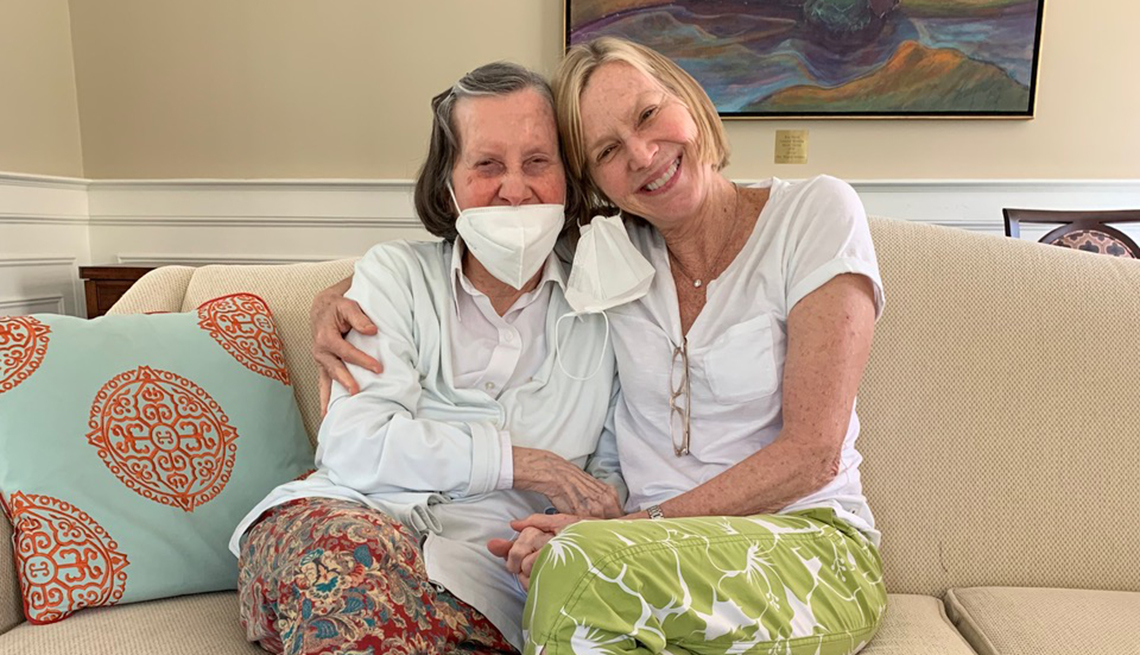
What I Learned From My Mom’s Approach to Death
- Select a language for the TTS:
- UK English Female
- UK English Male
- US English Female
- US English Male
- Australian Female
- Australian Male
- Language selected: (auto detect) - EN
Play all audios:
By
Lee Woodruff,
AARP En español Published January 31, 2023My mother had been thinking about her own end of life for as long as I can remember.
She’d nursed two parents through long, agonizing final chapters, one with cancer and the other with Parkinson’s. Being such a dutiful caregiver forged a determination in her not to end up
like her parents. She was almost militant about “not being a burden” to her three girls at the end.
Seventeen years ago, just a month before my own husband was critically injured by a roadside bomb in Iraq, my parents moved back to the East Coast. My father’s Alzheimer’s was progressing,
and they wanted to be closer to their three daughters, one of whom was living near Boston.
More from Lee WoodruffHow AR/VR can help caregivers Faith and spirituality in caregiving Be proactive about Alzheimer's Chasing satisfaction, not happiness Feeling angry? You are not alone
They chose an apartment in the independent part of a senior living facility in Concord, Massachusetts, that could handle the progression of my father’s disease. It was 20 minutes from the
youngest daughter.
Over the ensuing years, they were thoughtful about all the necessary decisions and documents, about expressing their wishes and more. By the end of her life, my mother had intentionally
pared down many of her physical possessions, leaving very little for us to sort through or divide. She had been mothering us even then.
We discovered a list of hymns and favorite songs, treasured poems and writings that could be used for a service, although she claimed most of her friends were gone. “Just scatter my ashes
with your Dad,” she said. True to form, she’d done the research on the cheapest crematorium when he had died in 2015, and the information was all there in her files, waiting for us after her
death.
The impact of COVID isolationThere had been signs throughout the past year of her beginning to slip. She was 89 and had begun to comment on her flickering memory and how the COVID lockdown and lack of contact with
people had slowed her down considerably.